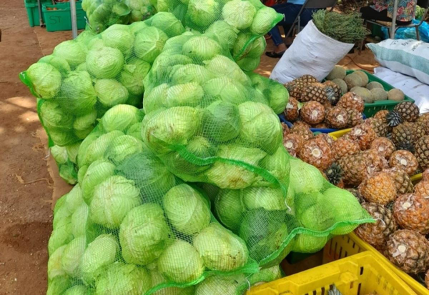With the demanding Christmas season fast approaching, the Rural Agricultural Development Authority (RADA) says farmers are indicating that the availability of popular agricultural commodities is to increase while the prices are to see a decrease.
RADA’s Post-Harvest Specialist and current Acting Production and Marketing Manager, Dwight Forrester, told JIS News that the recent increase in rainfall has contributed to the turnaround for drought-affected farmers in high-producing parishes.
“What I know, going forward into the Christmas season [is], the prices that we are currently seeing for agricultural commodities, especially vegetables and some categories of roots and tubers, will see some amount of decrease,” he stated.
Mr. Forrester said the decrease will not be great in every case, “but we are expecting, based on what is happening in the field, that there will be reduction in the prices of, for example, vegetables; I am anticipating a decrease in the prices for lettuce, pak choi, [and] tomato.”
He advised that a slight decrease is also expected in the price of cabbage, pointing out that the high-producing areas of St. Elizabeth, Clarendon, and Manchester are reporting that come the second week of November, there will be an increase in the volume of these commodities in the marketplace.
Regarding yam, which currently retails for up to $300 per pound, Mr. Forrester said the high-producing parishes of Trelawny, Manchester, and Clarendon are indicating that consumers can expect a slight decrease in prices, as “availability is increasing as time goes .”
Additionally, six-week vegetables and crops, which have been impacted by the dry spell this year, are also expected to show an increase in availability for Christmas, especially as RADA and the Ministry of Agriculture, Fisheries and Mining continue to ramp up support to farmers islandwide.
Consequently, Mr. Forrester assured that all parties are committed to ensuring “national food security is not just something that we speak about but something we put in action, so that the consumers of Jamaica can be comfortable in knowing that safe food are available to them at a price they can afford.”
Source: JIS



